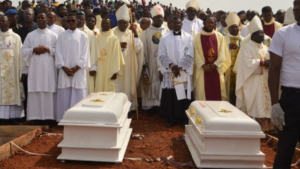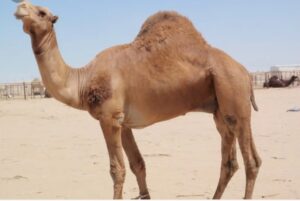What plan does Tinubu have to liberate Nigerians
Quite literally, ‘emi l’okan’ in the Yoruba language translates as ‘it is my turn’. It is neither a plea nor a bargain; it is a stake on a claim not given to negotiations. It is throwing down the gauntlet and challenging any objector to a duel. It is a readiness and an invitation to settle the score without further ado. In short, it is saying now or never. It is partly bravery, and partly bravado, but there is no mistaking the intention. It is all or nothing. Politicians are often despised for their habit of not speaking truthfully when given the chance. They tend to be evasive, ambiguous, obfuscate and economical with the truth. Yet, when one comes up and lets the public know exactly what he is thinking, people throw up their hands in horror. How dares he says such a thing? How audacious, how shameful! Rather than castigate the All Progressives Congress presidential candidate, Bola Tinubu, for speaking his truth, this column believes he ought to be applauded for his candour on this particular occasion. After all, the same man has been vilified for concealing his birth origins, his school records and a host of other personal details of interest to the public. You cannot accuse a man of not levelling with the public one day and accuse him of saying too much another day. Is it any wonder why so many politicians err on the side of caution by not telling the whole truth all of the time?
It was at an exultant, auspicious gathering of the APC party activists in Abeokuta on June 3, 2022, with Tinubu on the campaign trail to garner support from the delegates in the party’s primary, that he decided to come out swinging, sharing some unpalatable truths with the audience about his role in the emergence of retired Major General Muhammadu Buhari as President. It was a gathering of his kinsmen; an arena of maximum comfort for him. He threw away all pretensions to decorum and political correctness and went ‘native’. He deployed the best of Yoruba idioms laced with biting sarcasm in a way that even Wole Soyinka, the Master of the English language universe, would have found impossible to translate adequately. Tinubu did not only want his kith and kin to hear him, he wanted them to feel him from their underbellies with nothing lost in translation. He made revelations after revelations concerning the jostling for positions in APC, going back to its roots in the defunct Alliance for Democracy, and how he made personal sacrifices to help nurture and grow the party to become the juggernaut that it is today. In much the same way as he was instrumental in engineering the ‘o to gee’ (enough is enough) movement that toppled the Saraki political dynasty in Kwara State in the 2019 general elections, ‘emi l’okan’ has become Tinubu’s revolutionary rallying cry in his march towards the seat of power in 2023.
As things stand, with a fractured opposition and a continuing focus on religion, the current atmosphere makes a Tinubu Presidency more likely, hence, the need to ask searching questions of the man whose “life-long ambition” it is to be Mr President. Tinubu had worked in a couple of blue chip companies in his more energetic, younger days. He knows full well that if any enthusiastic man appears in front of, say, Mobile Corporation recruitment panel for an appointment as the top executive, he is sure to be asked the simple question: ‘why do you want to work for this company’? To reply by saying, ‘Oh well, it is my lifelong ambition to become CEO of Mobile’ would be honest but it would also be an extremely foolish thing to say. Mobile would expect the candidate for that pivotal position to lay out exactly what he is bringing to the table that sets him apart from the others. In any case, citing personal ambition as the motivation for the top job in any company is unlikely to be viewed in a positive light. If anything, it would be seen as egocentric, introspective and rather hubristic. Or could these attributes indeed be a reflection of Tinubu as a person after all?
If the APC presidential candidate wishes to disabuse the sceptical public of the above notion, then, he has a lot of explaining to do. For starters, the budget presented to the National Assembly in October 2021 has a funding gap of N6.25tn, out of which N4.11tn is attached to revenue, i.e. recurrent expenditure, like welfare allowances for lawmakers, salaries and emoluments for civil servants. How would President Tinubu address this? Would it be through borrowing? Direct taxation? Selling off more public assets? Inflation is hovering above 18%, but the real figure is much higher. What would be the fiscal and monetary options for President Tinubu? World Bank Development Update on Nigeria released in June 2022 points to an additional one million citizens being pushed into a life of poverty and destitution, while the country is paying oil magnates close to N5tn in the scandalous oil subsidy for 2022 alone. Clearly, Nigeria is in the palsied grip of oil saboteurs who are holding the country in a gut-wrenching arm lock. What plan does Tinubu have to liberate the people from that? “Despite the better-than-expected performance of the services and agricultural sectors and higher oil prices stemming from the war in Ukraine, Nigeria is experiencing a curious case of lower fiscal revenues…,” according to the World Bank. Nigeria hurts when oil prices fall, the country hurts still when prices go up. What is Tinubu’s analysis and solution for this?





